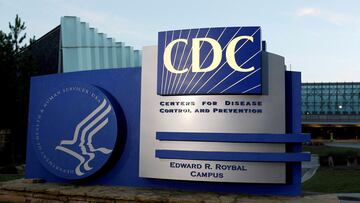HEALTH
CDC warns against Candida Auris: what are the fungal infection symptoms?
The deadly fungus has been spreading at an increasing rate in the last five years, especially dangerous due to its resistance to medicine .

The Centers for Disease Control and Prevention has released a factfile in response to growing concern over the Candida auris germ. The CDC’s website shows 2,377 cases of confirmed C. auris infections in the US, which doesn’t sound like a lot but has grown rapidly in recent years. It was first discovered in 2009.
The number of cases were 330 in 2018, increasing by 44% to 476 in 2019. This then grew by 59% to 756 in 2020 and by an extra 95% to 1,471 in 2021, the agency’s researchers reported. This would coincide with the high amount of hospital admissions generated by the covid-19 pandemic.
“The rapid rise and geographic spread of cases is concerning and emphasizes the need for continued surveillance, expanded lab capacity, quicker diagnostic tests, and adherence to proven infection prevention and control,” said lead author Dr. Meghan Lyman, an epidemiologist at the CDC.
A concern for scientists monitoring the virus is its resistance to drugs. Antifungal medicines commonly used to treat Candida, a sister virus, do not work on C. auris.
What are the symptoms of virus?
The most common symptoms are fevers and chills. However, as these symptoms are similar to many other infections the C. auris illness can be hard to pinpoint as it is often caught after being admitted to hospital.
If antibiotics do not improve the condition then this could be a mark of an infection.
It takes a labratory test to diagnose an infection.
How serious is a diagnosis?
A bloodstream infection by C. auris is very serious. More than one in three patients with an invasive infection have died. However, an early diagnosis is important to avoid this.
Dr Waleed Javaid, an epidemiologist, infectious disease expert and director of infection prevention and control at New York’s Mount Sinai Downtown, told NBC News, “We don’t want people who watched ‘The Last of Us’ to think we’re all going to die,” but also described the news of the virus as “worrisome”.






